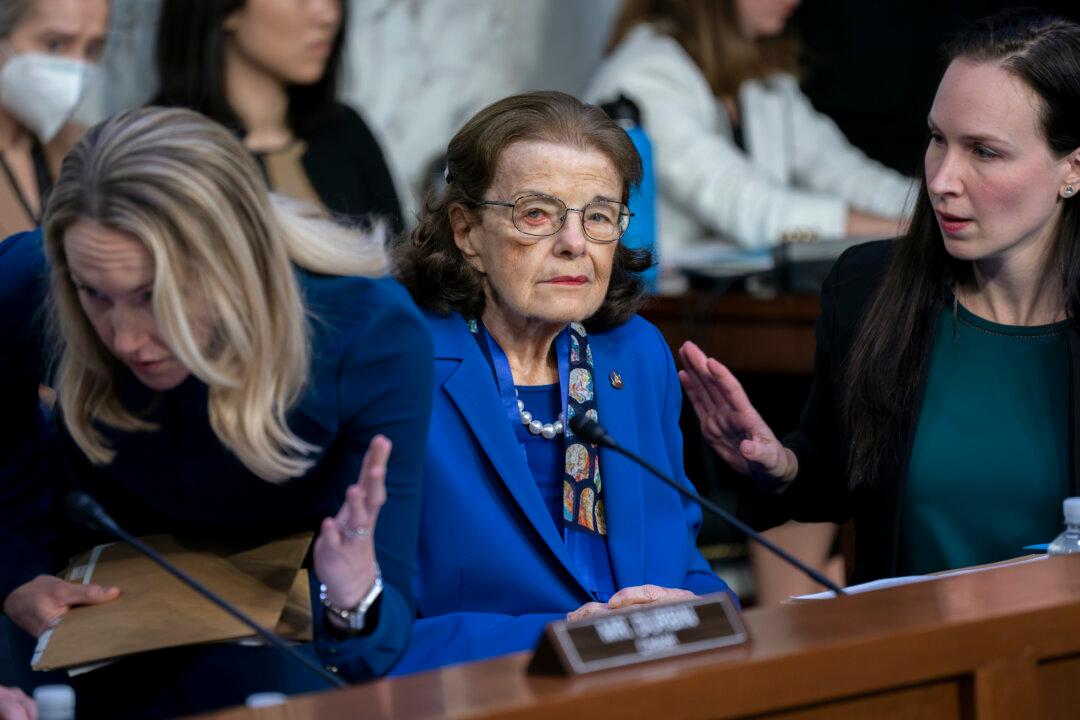During a Senate Appropriations Committee meeting, Sen. Dianne Feinstein (D-Calif.) confused colleagues when she launched into a speech mid-vote.
The committee had met to approve 12 appropriation bills, and when called upon for the verbal vote, Ms. Feinstein had a halting start as she searched for words, ignoring her colleague committee chair Patty Murray’s (D-Wa.) instructions to “just say aye.”





